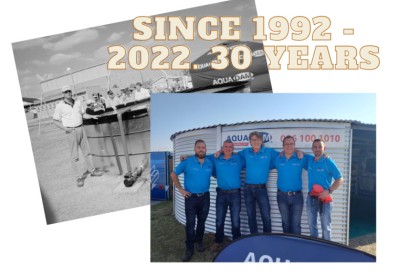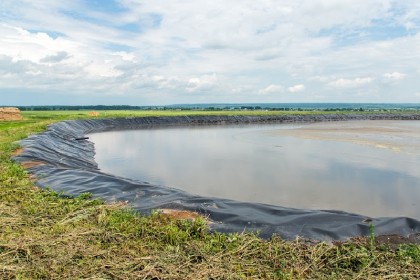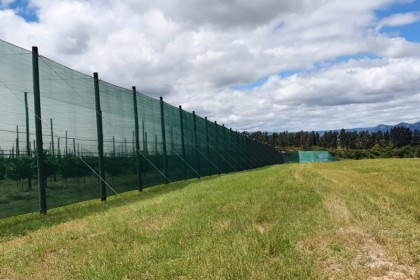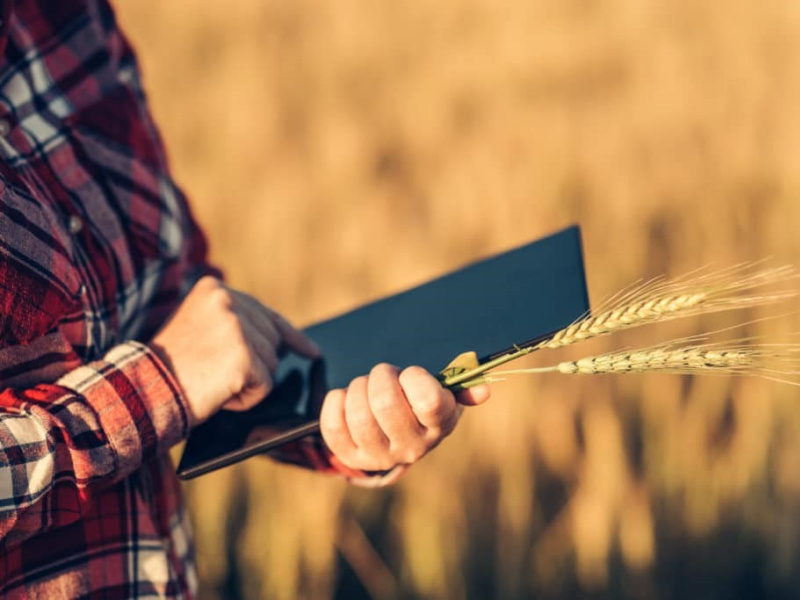
Food Waste and Food Loss
The waste and the loss of food are happening at an alarming rate throughout the supply chain of food production. In Agriculture, we are very aware of every stage where food can be lost or wasted. Food intended for consumption gets wasted or discarded along the food supply chain and can no longer be consumed where it is needed most. Our global population is now estimated to reach an alarming 9.5 billion people by 2075, according to United Nations estimates.
As the people inhabiting this planet we all need to ensure we have sufficient food resources available to feed all our people. The current food production practices account for the wasting of up to 50% of all food produced. Farmers and engineers need to work together effectively and promote sustainable ways to reduce waste from the farm to the supermarket and to the consumer.
It is the agricultural specialists, scientists, and engineers that have the latest knowledge and skills to develop the future tools and techniques we need to achieve food production goals that can sustain the planet and her people. Food productivity will have to increase significantly to supply an ever-growing need for food. But the pressure will have a severe impact on resources such as land, energy, and water. The increasing yield in food-deprived countries may be an immediate solution to food security but in order to sustainably meet the food needs of over three billion extra people on the planet by 2075, we may also need more immediate initiatives and actions to reduce the substantial quantity of food wasted annually around the world.
The reasons why food is discarded from time to time.
In the majority of households most are very aware of food waste. Some even participate in salvaging food and distributing it to the less fortunate in their communities. It is the bigger-picture scenario that is however more troublesome as there are many reasons why food is discarded. The bulk of food waste happens throughout the entire journey that food makes from the farms, through storage, processing, transport, market, and finally to our homes. From the time food leaves the farm, to our fork, it passes many processes in the long food supply chain and it is in this journey that the big losses occur.
The next 50 years will see a period in which substantial changes are anticipated in the wealth, caloric intake, and dietary preferences of people in developing countries across the world. Such a projection presents mankind with wide-ranging social, economic, environmental, and political challenges that must be addressed to ensure a sustainable future for all. One key issue is how to produce more food in a world of finite resources.
The students at AGRICOLLEGES international are equipped to develop relevant skills including agriculture production to harvesting, post-harvest handling, processing, packaging, distribution, retail, and consumption. According to a study done by the FAO one third of edible food produced annually (about 1.3 billion tonnes) is lost or wasted. We are aware of the food and hunger needs of many people on the planet and the food we are losing or wasting, can feed millions and ultimately address our goal as a people on this planet to eliminate hunger and poverty. In the production of food, it is not only the food that gets wasted but we need to be sensitive about all the other wastes such as our critical water sources, energy and capital. In Agriculture, these are very important issues we need to address when we discuss food waste and food loss.
If we are serious about wasting food and our vital resources, you can look at the following fascinating article from Farming First. In sub-Saharan Africa, it says, post-harvest losses account for up to 20% of harvests.
What Then Are The Key Challenges We Need To Address In Sub-Saharan Africa?
If we want to address some of these losses and wastes, we need to improve food handling, be on top of the latest packaging developments and the most important issue is to understand and implement global good agricultural practices and principles in any food production enterprise. The best way to drive these changes can be through increased regulations or addressing skills development and training needs of all who work in the supply chain of food production. If we can ensure a well-developed and skilled workforce within the Agricultural pipeline to drive the principles of better and more sustainable food production for all, we may establish a more food-secure future.
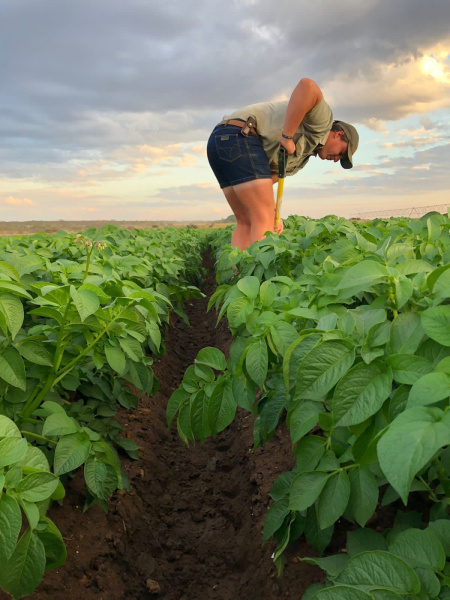
The African continent has been described as the bread basket of the world in the past. On this continent we have sufficient natural resources to produce for our needs. We can feed our nations and be self-sufficient, however we fail to increase our food production targets and do not manage our energy and water sources sustainably. If we, on the African continent do not address these challenges collectively, it will be one of the greatest missed opportunities of the century. The capacity of small to medium farming enterprises and the lack of skills and knowledge are the crucial issues we need to address in order to secure food for the future.
AGRICOLLEGES international offers the opportunity to study agriculture online to those interested in a career in agriculture, as well as those looking to improve their existing knowledge. Our variety of courses is affordable, modern and offer students the flexibility to study at their own time and place, as well as to continue to work and earn while they learn. Click here to find out more about our available courses.
Building the skills needed to ensure that our agricultural processes and outputs are as good as they should be is key to the industry’s future success. AGRICOLLEGES international provides students with an opportunity to build their knowledge one step at a time, starting with a variety of Introductory short courses in plant and animal production as well as agribusiness. This progresses to Fundamentals courses on the online platform and also offers four one-year National Certificates in Agriculture.
Click here to find out more about our available courses and how they can help shape your future.
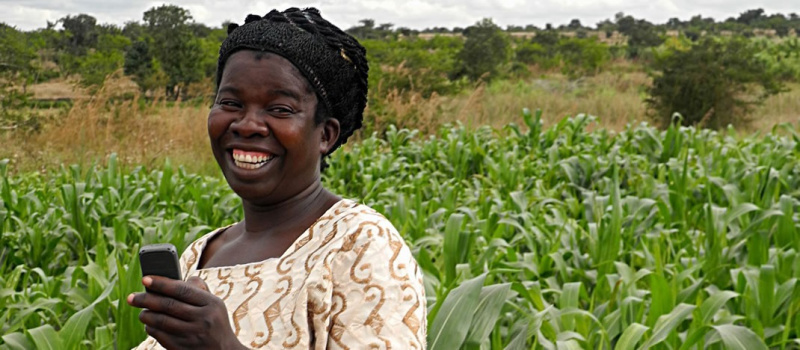
Conservation Of Our Natural Resources Such As Our Soil And Water
We need to pay close attention to sustainable agricultural practices if we want to meet the urgent needs of the people on the planet. The environmental impact of food production and farming practices on the planet are very important issues we need to face for generations to come. We need to ensure everyone on this planet has access to nutritious diets in a sustainable manner. Farmers need to increasingly evaluate their environmental impact, smart water usage, soil health, recycling, carbon emissions, and renewable energy, as well as employee well-being. All of these issues can and will ultimately impact everyone in the agri-supply chain, from growers to marketers and distributors. Food producers also have limits on how far they can reduce their impacts. How can we address the identified issues of food production methods to not only address issues but also minimise the impact on the environment? We realise we need to sustainably contribute and support the food we produce for our own future. However, all these food production activities contribute to climate change, water scarcity, soil degradation, and the destruction of biodiversity.
By implementing new technology, smarter solutions and systems, we can monitor and manage our waste, our impact, and our footprint on the planet. In addressing the challenges of food security, an increasing concern for global populations, agriculture has come full circle from ‘old fashioned’ to become one of the most critical professions on the planet. And it is modern, e-learning institutions such as AGRICOLLEGES that are best placed to help future farmers set themselves up for success in this ever-changing world.
We believe it is possible to provide 60-100% more food by simply eliminating food losses and food waste. This cannot be done without addressing the issues of access to land, addressing the energy crisis in our country, and protecting and caring for all our water resources. Factors affecting waste relate to agricultural practices, engineered infrastructure, economic activity, vocational training, knowledge transfer, culture and politics. At AGRICOLLEGES international we make sure our students learn about many of these food security aspects and challenges and qualify with a modern relevant qualification. For more information visit our website at: www.agricolleges.com.
http://www.fao.org/news/story/en/item/262504/icode/%20/
For more agricultural products and services, click here.







